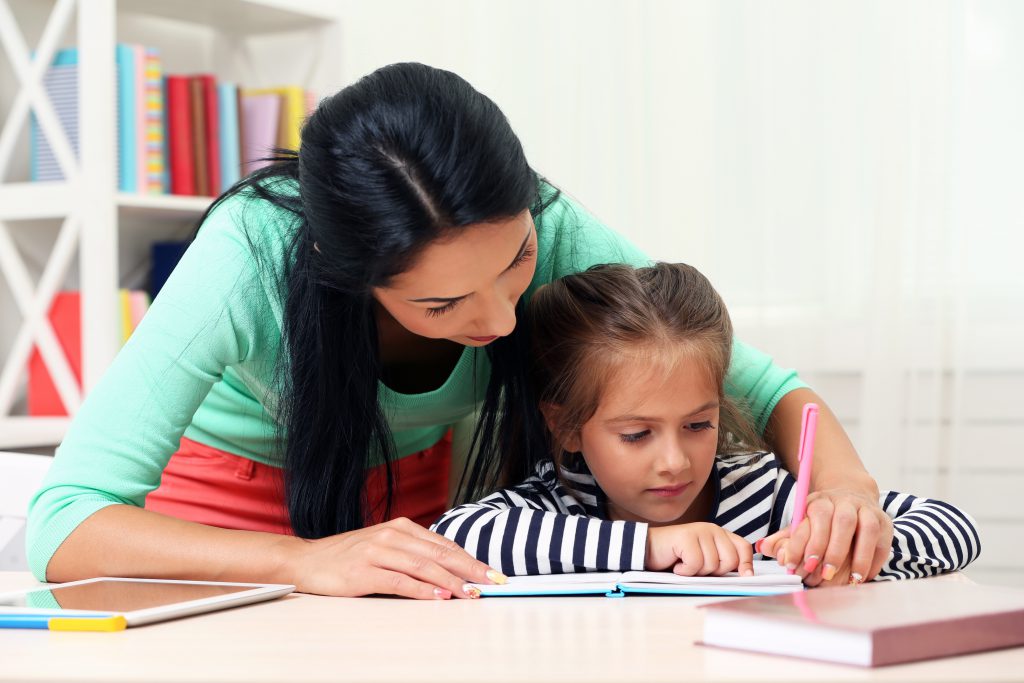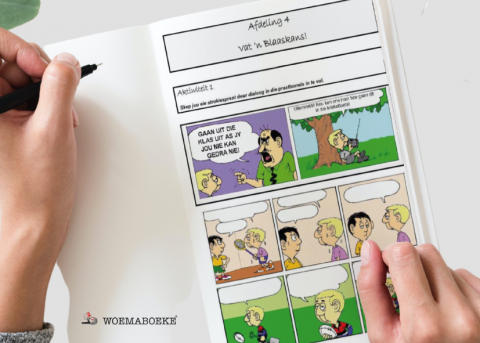The South African Schools Collection
Parental Balancing Act 101
Students with involved parents are more likely to have higher marks, attend school regularly and possess good social skills no matter their income or background, a recent American study shows. In fact, another study goes further; when parents are involved, it’s not just the performance of their own children that improves, but the performance of all the children at the school.
But something has changed over the years: parents. Though well-meaning, in an increasingly competitive and child-centred world, many parents have morphed into “helicopter” parents, while others have transformed into “drone” parents.
“Think of a helicopter,” says counselling psychologist Shelley Corrigan. “It’s noisy, invasive, and you have no choice but to stop what you’re doing because the hovering demands so much attention.”
Corrigan appreciates that parents’ involvement is vital to kids’ schooling because “it sends a positive message that school is a worthwhile pursuit and shows an interest in the child’s structures”.
But she says excessive interest in a child’s education and social life, and taking on too much responsibility for a child’s successes and failures, is not helpful.
“It denies kids any form of autonomy or independence,” says Corrigan.
Crossing the line
“Disproportionate homework assistance, asking the teacher to increase a mark, or calling the coach when your child doesn’t make the A-team, is ultimately undermining. It comes with consequences for kids,” says Corrigan.
“These include decreased self-confidence and self-esteem, not learning how to negotiate life on their own terms, underdeveloped coping skills, increased anxiety and a sense of entitlement as in, ‘my mom will speak to the teacher’.”
“Knowing the ground your child is walking on is important, but not to the point where you are invading your child’s psyche.”
Schoolgoers may encounter problems which, if worked on, will help them in adult life. “Your child may decide she doesn’t like the teacher, for example, and want to change classes. But in later life, the child will find she can choose her friends, not her colleagues. It’s important to learn to navigate that. Unless harm is being done, it’s preferable to try and help children find learning opportunities and strive for constructive engagement with someone they don’t like,” says Corrigan.
“Parents,” she says, “have a responsibility to have an eye on the future and to consider, ‘What type of adult do I want my child to be?’”
Corrigan says the same principles apply whether the child is in preschool, junior or high school.
“A helicopter leaves a constant shadow,” she says.
From helicopters to drones
Aamira Surtie, registered counsellor for Crawford Preparatory School in Sandton, says she’s encountered both helicopter and drone parents – a 2.0 version of helicopter parenting.
“Drone parenting involves covertly using social media to conduct surveillance on their kids,” she explains.
Unlike noisy helicopter parents, drone parents are silent, so the child is unaware of their presence, but the parents still manage to take over aspects of a child’s life by working behind the scenes.
Surtie says many parents find it hard to find the right balance.
“Micromanaging every scenario, walking their children to class when they’re old enough to do so alone, or packing their bags for them in, say, Grade 5, is not helping children to become responsible. Pressuring them on the sports fields also just creates anxiety.
“School is where the groundwork is done for children to learn how to be assertive without being aggressive. They will need these skills in life,” she says.
Consequences of over-parenting
Surtie says parents should take a moment to think about whether it is their child’s anxiety or their own they are reacting to.
“If it’s your own, take a step back,” she suggests. “Children need to develop their own coping mechanisms.”
In fact, a recent study at Brigham Young University in the US, titled Is Hovering Smothering or Loving? shows that even parental warmth – defined as parental availability – can’t neutralise the consequences of over-involved parenting.
In the study, consequences included lower self-worth and higher risk behaviour, such as binge drinking. Children, the researchers found, needed support, not control.
Nicola Pereira, intern educational psychologist and history teacher at Sandton’s Crawford College, agrees. “In my experience with teenagers, over-involvement backfires in the form of increased anxiety in a child. Depriving a child of their independence means they grow up lacking two essential qualities – resilience and grit,” she says.
“Kids have to learn to pick themselves up after a failure. You have to let children handle consequences, whether it’s being hungry after leaving their lunchbox at home, or being left out of sports if they forget their takkies. Otherwise, what have they learnt? Nothing.”
And, she says, while some parents may be in a position to drop everything to run to the school to deliver a forgotten jersey or book, the reality is that none of us can be there for our children all the time. “We are merely caretakers. Our kids must learn to take care of themselves.”
So, where to draw the line? “Parents need to set boundaries – for their children and themselves. They need to find the balance between being not involved at all and being over-involved. It might come when your child says, ‘You’re embarrassing me, Mom,’” says Pereira. “Then it’s time to listen.”
Or, she says, perhaps after some reflection parents might realise they are overcompensating for a lack of attention or involvement in their own childhood.
Parents shouldn’t feel they need to repeatedly contact teachers to check on progress. Any teacher in a well-functioning school will contact the parent if a problem arises, says Pereira. “I contact parents if a child starts getting poor marks and give suggestions on how we can support the child.”
Corrigan believes the way to know when you’re off balance in the school relationship is when “stepping in” becomes a recurring pattern.
“If you’re constantly calling the school to complain about your child’s marks or a teacher, or phoning another parent to find out why your child has been excluded from a party, you need to take a step back. A recurring pattern means you’re always chipping away at your kid’s world.”
When to step in
“School is usually the first major institution a child engages in alone,” says Corrigan. “It’s important for parents to realise their children are taking their first step towards individuation and finding a sense of identity.”
The exception, says Corrigan, is when bullying raises its head – whether it’s emotional, physical or sexual.
How to be involved:
- Establish a family routine that supports learning.
- Ensure that children have a set bedtime, that they have a quiet place to study and that the rules and boundaries at home tie in with those of the school.
- Monitor your child’s out-of-school activities. Find out who they hang out with.
- Express to them your high (but realistic) expectations for their achievement.
- Maintain a good working relationship with your child’s teacher and don’t badmouth her in front of your child. Address issues through the right channels.
- Attend the school’s AGM and join the PTA body.
- Ask family members to attend school functions when you can’t attend.
Source: https://www.childpsych.co.za/ Used with permission.






 Sign-up and receive the Business Media MAGS newsletter OR SA Mining newsletter straight to your inbox.
Sign-up and receive the Business Media MAGS newsletter OR SA Mining newsletter straight to your inbox.